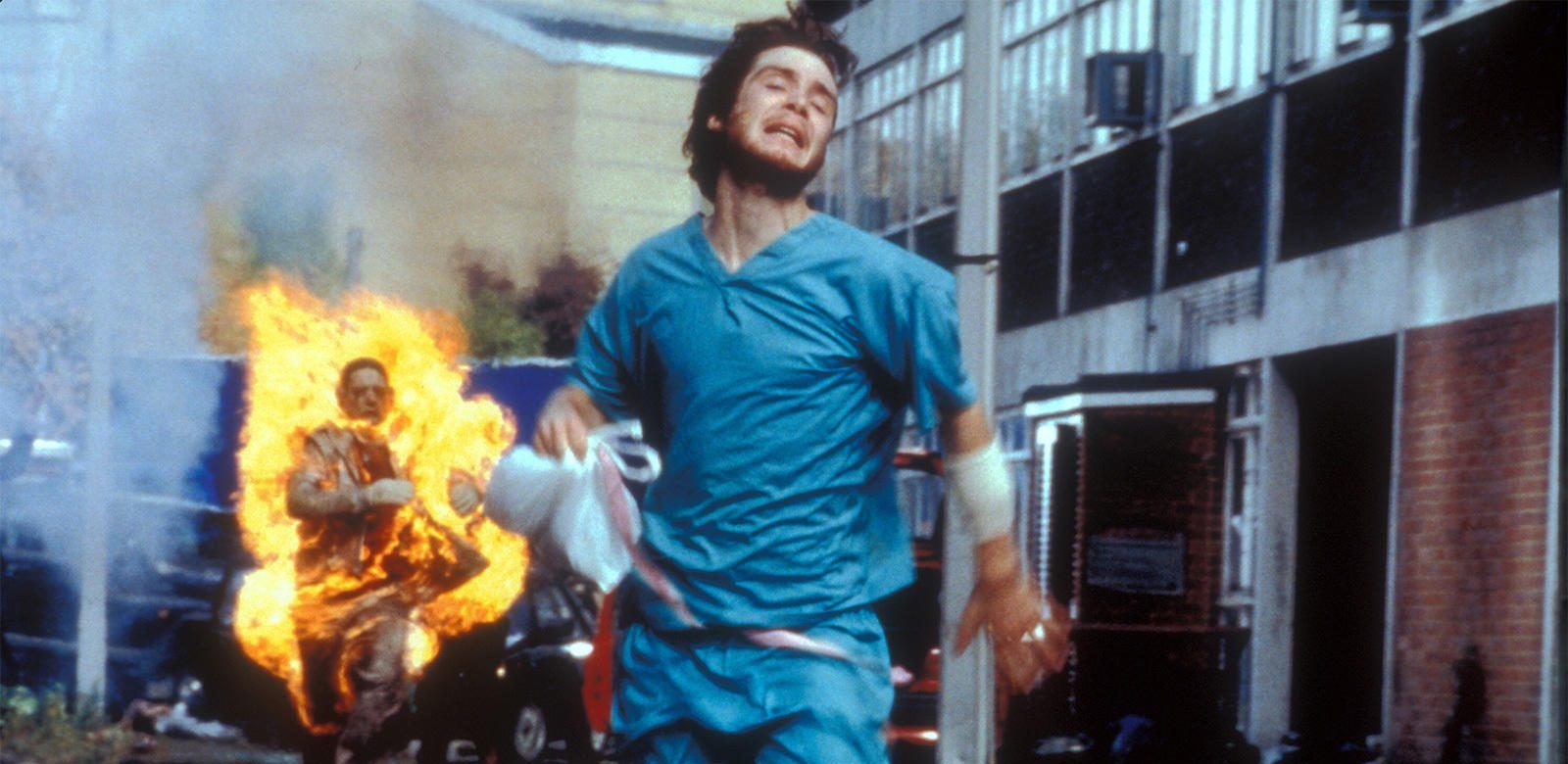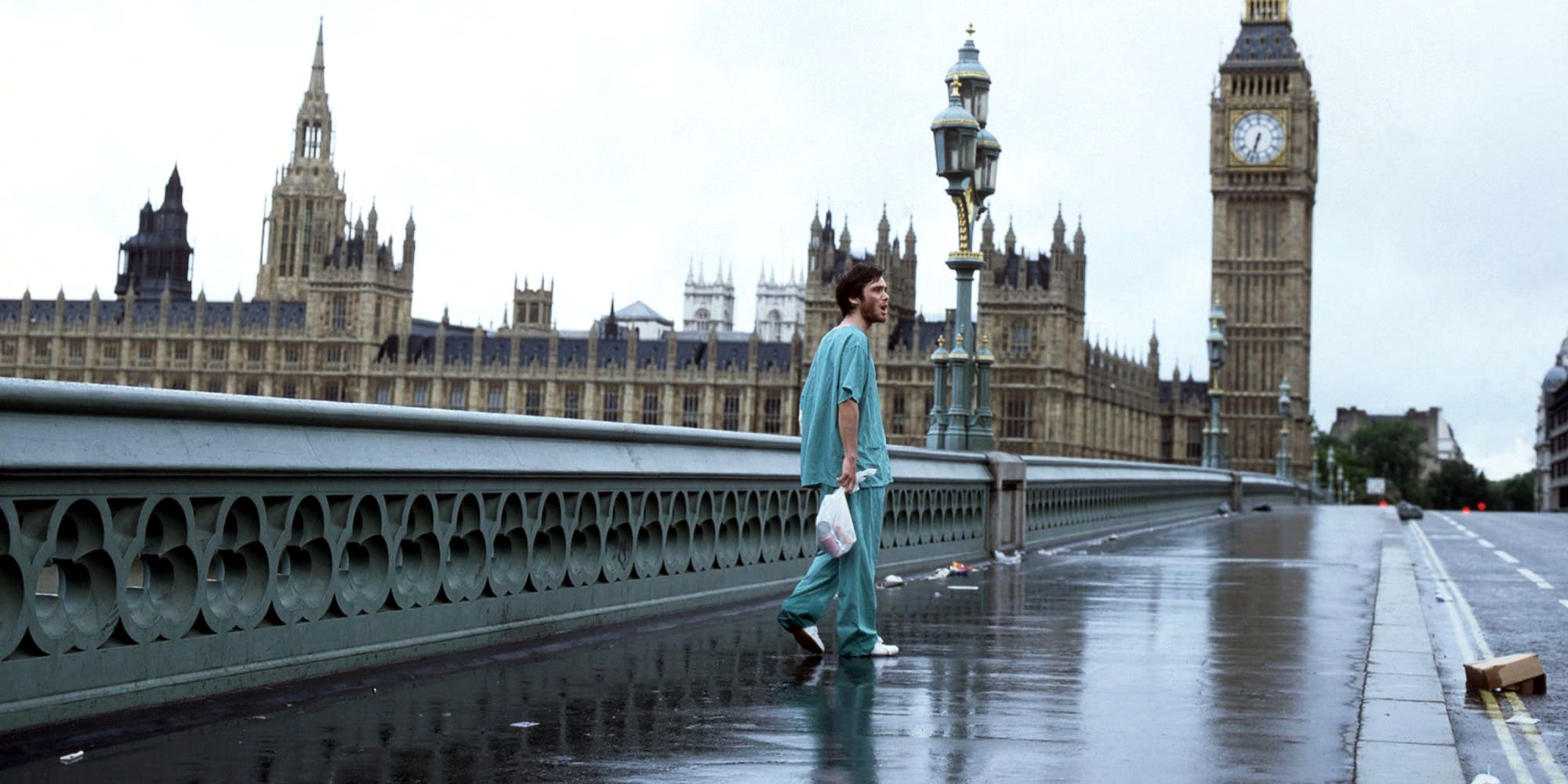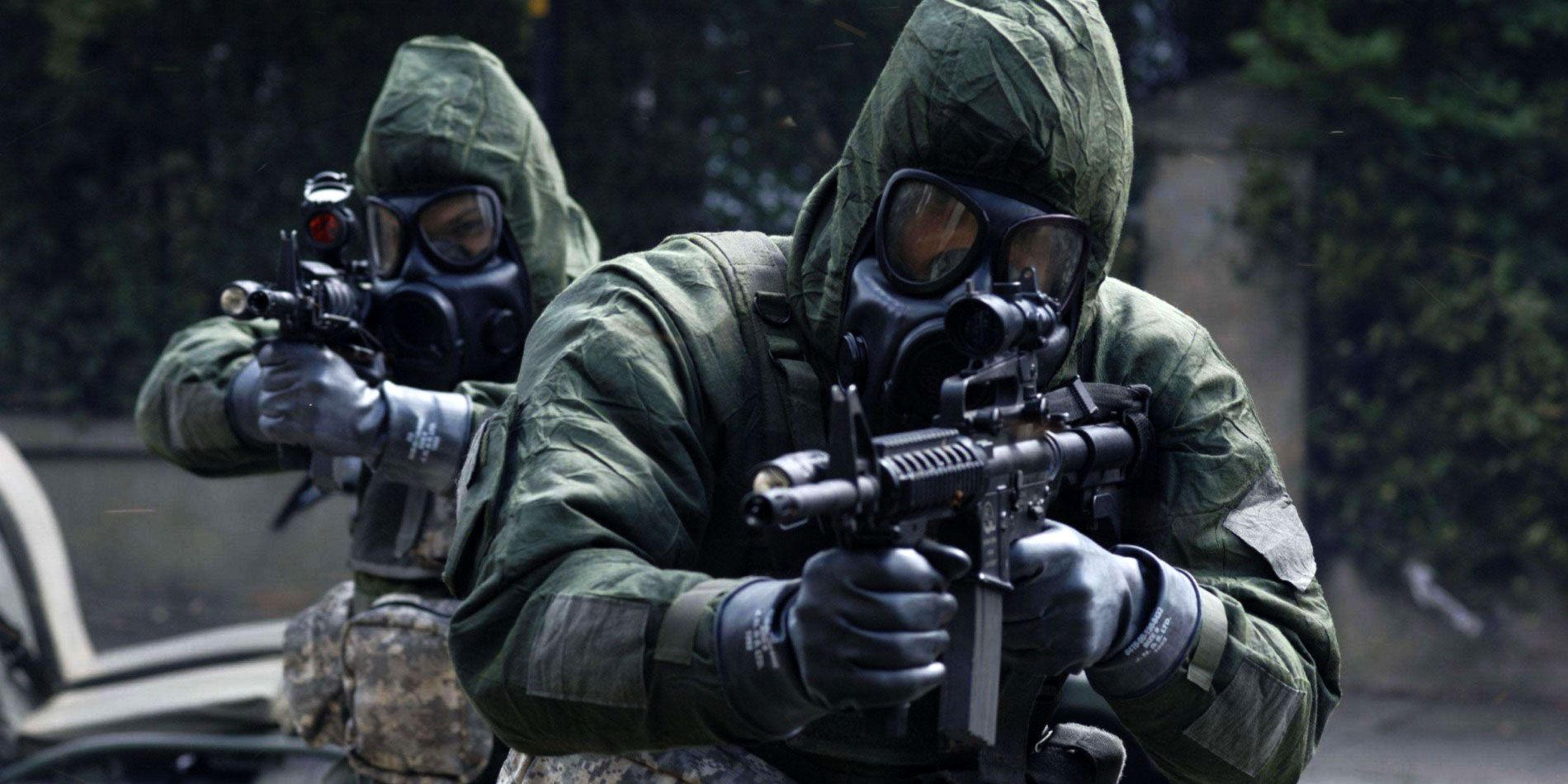This article talks about events that some may find upsetting, including the mention of 9/11 and war.
Zombie films have been consistently powerful tools for social commentary, using their uncanny violence to exaggerate and question humanity's failures, from racism to consumerism, xenophobia to misogyny and almost every other ill that plagues their zeitgeist. So it comes as no surprise that Danny Boyle's 20-year-old 28 Days Later and its 2007 sequel 28 Weeks Later have a complex and biting relationship with the era of their release: a time of overt militarism, growing jingoism and global distrust. And in a storytelling move that could have worked against itself, this franchise is intentionally up front with its social commentary, with the very first scene of the franchise clearly identifying and labeling the thematic problem as it names the virus that turns regular people into violent zombies Rage. But what makes both these films strange and powerful is that the main threat isn't the infected; it's the military.
The franchise's focus is on more than just individual rage and, especially due to their proximity to 9/11 and the US invasion of Afghanistan and Iraq, this mini-franchise managed to act as cultural mirrors to military violence and systemic failure. Not only do these two films hold up incredibly well in 2022, but after multiple economic recessions, continued and escalating warfare around the world, the increasing threat of climate change and the disastrous structural response to the COVID-19 pandemic, they feel disarmingly prescient, each describing a world more similar to today than the time they were created. After looking back at their history, as well as the current state of the world, now more than ever, audiences are ready for 28 Months Later.
28 Days Later Shows a More Optimistic and Isolated Look at Militarism
Danny Boyle is a filmmaker who doesn't focus on large-scale societal issues but rather uses them as a backdrop to tell more personal stories. In the same way Trainspotting, Sunshine and Slumdog Millionaire each avoided direct conversation around their bigger topics -- drug addiction, climate change and poverty, respectively -- 28 Days Later similarly abandons any overarching messaging on its themes and instead tells the post-apocalyptic story of a small group of survivors after the Rage virus infection in the UK. What's fascinating is that, even though 28 Days Later was written and shot before the attacks on 9/11 -- with filming wrapping up just before on September 10th, 2001 -- the film's depiction of the military is impossible to separate from the US invasion that quickly followed and was already underway before the film's US release in 2003.
By the end of 28 Days Later, the survivors are lured to a military outpost after hearing a radio message claiming that the soldiers have a cure to the Rage virus and that their compound is a safe haven for survivors. But once they arrive, one is immediately infected and gunned down by the soldiers, and the other three are held captive at the mercy of the small military group who plan to rape and murder them. In a scene where the soldiers fantasize about a future world when it's back to "normal," their leader Major West suggests that the world hasn't strayed too far from normal because, as far back as he can remember, people have always been killing each other. This brief glimpse into the mind of West not only offers insight into the way he thinks but also describes exactly what the military does, which, when it comes down to it, is a globally accepted example of people killing people. This dark vision of the apocalypse, one where the systems that are supposed to be protective and restorative are actually violent and destructive, hits close to home, especially in this context of war.
Boyle's decision to end on a smaller and more optimistic note is really the only sign that this story was conceived before 9/11, either unable to predict or uninterested in bothering with the ramifications of a larger world. 28 Days Later restricts the Rage virus to England, arguing it could not cross the oceans to infect the rest of the world, and by keeping this solely within the UK and allowing the three survivors a happy escape by the end, the story feels more isolated and more hopeful, divorced from any larger political themes that Boyle has consistently left alone. Thankfully, the sequel was only a few years away and picked up right where the original left off.
28 Weeks Later Displays a Bleak Continuation of Military Failure
If 28 Days Later was a strangely prescient commentary on militarism and catastrophe, then 28 Weeks Later is a direct response to that cruelty in the real world. Coming out in May 2007, Juan Carlos Fresnadillo's sequel carries with it the baggage of a war already defined by death, torture and failure. Beginning with a scene that takes place during the initial infection phase from 28 Days Later, the sequel sets up a story that seems to follow Boyle's more personal storytelling style: after the infected attack a group of survivors, a man chooses to abandon his wife to certain death and save himself instead. After being united with his children 28 weeks later in a rebuilding London, they find that his wife didn't die and is instead an asymptomatic carrier of the Rage virus, who manages to reinfect London again.
While the storyline focuses on a family riven by cowardice and anger, 28 Weeks Later plays out almost in opposition to Boyle's work, actively setting up the personal drama to speak more specifically about the larger social commentary. After the titular 28 weeks, the repopulation of London is being overseen solely by the US military, with snipers on rooftops spying on these new citizens through their rifle scopes. The bunkers are filled with similar surveillance crews, and the streets outside the main district have hazmat teams bagging and burning the dead. While they have the basics of shelter and food, Fresnadillo barely includes any mention of how they plan to rebuild, with the support system beginning and ending with the US military.
After the reinfection begins in 28 Weeks Later, the US General quickly opts for a Code Red, an order for soldiers to kill everyone, and they obey almost unflinchingly, shooting the infected and uninfected alike before firebombing the entire city. Even the few soldiers who attempt to help the two main children escape London aren't doing it for humanitarian reasons but simply see the usefulness of their blood in creating a future cure. By its brutal ending, literally every character in the movie either dies or gets infected, and the virus spreads to Paris. Mirroring the actual US invasions -- supposedly sent to democratize and rebuild another country but instead killed thousands and left a government worse than what it found -- 28 Weeks Later doesn't make anyone a villain but is instead a bold statement on structural violence and the bloody price paid for a supposed support system that is mostly geared for death.
28 Months Later: Why the World Is Ready for Another Sequel
In the 15 years since the sequel came out, the world has witnessed an almost unending stream of violent catastrophes, though there are two recent events that make it the most fitting time to release a new film in the franchise. The first is the COVID-19 pandemic and the disastrous structural response to the disease. As a film series based on the spread of a highly contagious and deadly virus, 28 Months Later could continue the work of 28 Weeks Later and tell an updated story on a health crisis beyond our control.
The second event is the US withdrawal from Afghanistan last year, marking the end of the brutal campaign that began 20 years earlier when 28 Days Later was first released. As a film series that either intentionally or accidentally became connected with this war, it would be an appropriate time to add another chapter in the series and update its scathing critique of militarism and violence. But perhaps it's always a "perfect" time for 28 Months Later because, even with these two era-defining events happening recently, it's hard to ignore the other diseases, wars and crises that happen every year, which only makes Major West's speech in 28 Days Later all the more haunting.




